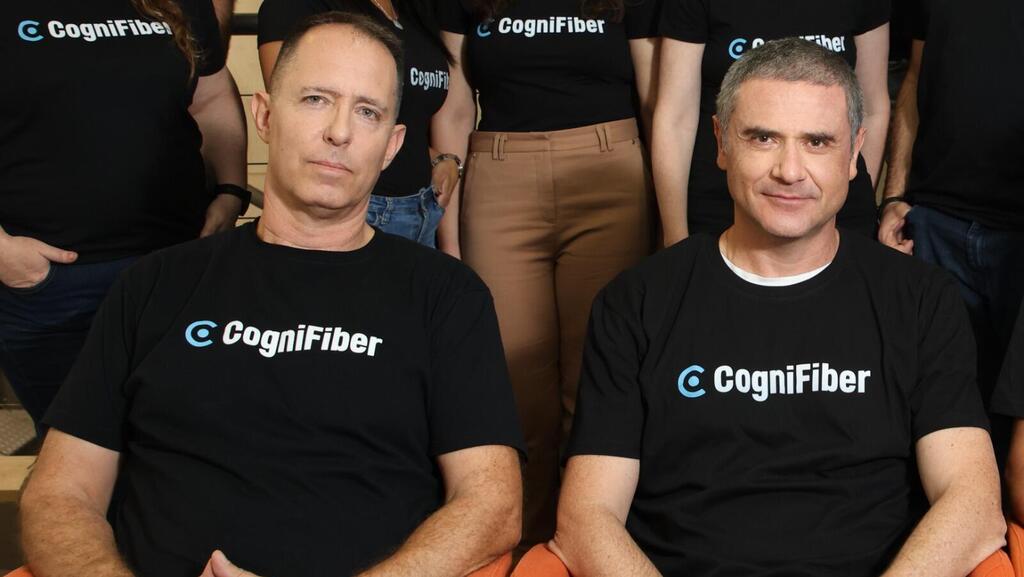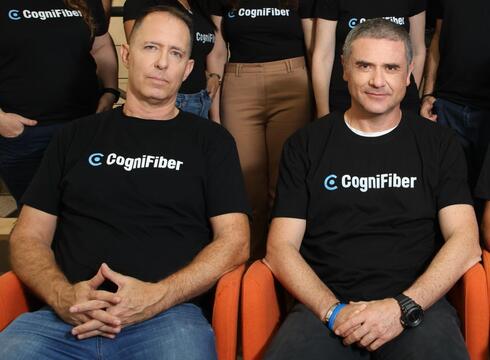
The Israeli startup developing processors that perform AI tasks 1,000 times faster than Nvidia
CogniFiber is developing DeepLight processors that utilize multi-core optical fibers to process data at the speed of light as it travels through the fiber, aiming to increase processing speeds up to 1,000 times during AI inference while using only about 1% of the energy
CogniFiber, a startup developing photonic computing technology for artificial intelligence (AI) known as DeepLight, announced on Thursday the closure of a $5 million funding round. The funding round was led by Chartered Group and Eastern Epic Capital. To date, the Israeli startup has raised a total of $14 million, including funding from the Israel Innovation Authority.
Full list of Israeli high-tech funding rounds in 2024
The new funding will support the completion of the photonic processor's development and also aid in the ongoing development of a photonic supercomputer slated for market entry by 2027.
CogniFiber was founded in 2018 by Dr. Eyal Cohen, a hardware and algorithms engineer (formerly of Mellanox, Saifun, and Oren Semiconductor), who also holds a Ph.D. in brain research from the Weizmann Institute, and Professor Zeev Zalevsky, a world-renowned optics researcher, serial entrepreneur, and current Dean of the Faculty of Engineering at Bar-Ilan University.
Building on extensive research and patented technology, the company, which currently employs 13 people, is developing DeepLight, a new class of photonic processors. These programmable and trainable processors utilize multi-core optical fibers to process data at the speed of light as it travels through the fiber. During inference, data flows through the fiber, and the light scans all components of the neural network, processing the data at speeds reaching billions of inferences per second.
Related articles:
In the IRIS classification test conducted by the company on the Aurora photonic demonstration system, the technology successfully performed 100 million tasks per second – 1,000 times more than NVIDIA's 100A processor for a single network instance, with an energy consumption of only 180 watts. By 2027, the company expects to reach a system capable of up to 50 exaflops with a power consumption of less than five kilowatts. With DeepLight technology, supercomputers the size of a football field could be shrunk to a few server racks, with reduced costs by tens of millions of dollars, saving tens of megawatts in electricity, and cutting over 50% of system construction times.
The photonic supercomputer is proposed to work in tandem or as an alternative to conventional computers based on silicon chips and electrical circuits, which struggle with AI workloads, consuming vast amounts of energy due to processing and cooling. The load challenge has significantly increased with the launch of generative AI applications like ChatGPT.
Dr. Eyal Cohen, CEO and Co-Founder of CogniFiber, stated, "The new funding will support the completion of the first generation of processors and our marketing and sales efforts as our initial products make their way to the global markets. We believe the new processor will realize the promise of scalable photonic computing, demonstrating how this unique technology can exponentially accelerate the development of sustainable AI data centers, smart cities, AI-assisted drug development, adaptive cybersecurity and countless other applications."
Ana Lipnik-Levy, Vice President of Strategy at CogniFiber, noted, "We deeply acknowledge the challenges of market education when a new computing platform is introduced, however, alongside us stands groundbreaking technology with significant disruptive potential, and we believe the current funding round will help us engage strategic partners to break into the global market and open a new, game-changing chapter in the history of AI."

